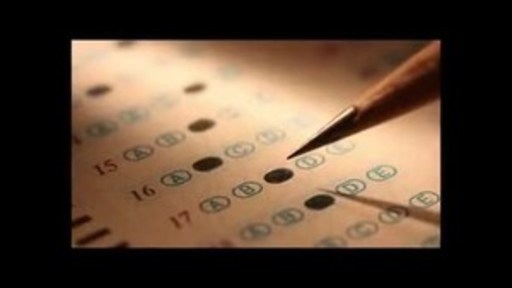Study finds most students in most nations cannot clear the bar set by Common Core or NAEP benchmarks
WASHINGTON, Jan. 17, 2018 /PRNewswire-USNewswire/ -- A detailed report released today concludes that the vast majority of students in most countries cannot demonstrate proficiency as defined by one of America's most common educational tests. The authors of the analysis suggest the U.S. has established benchmarks that are neither useful nor credible.
In their report How High the Bar?, the National Superintendents Roundtable and Horace Mann League linked the performance of foreign students on international tests of reading, mathematics, and science to the proficiency benchmarks of the National Assessment of Educational Progress (NAEP), the United States' longest continuing assessment of students. They also examined major assessments related to the Common Core.
The report notes that very few students in most nations would clear the NAEP proficiency bar the U.S. has set for itself in reading, math, and science:
- In no nation do a majority of students meet the NAEP Proficient benchmark in Grade 4 reading.
- Just three nations have 50 percent or more of their students meeting the Proficient benchmark in Grade 8 math (Singapore, Republic of Korea, and Japan).
- Only one nation has 50 percent or more of its students meeting the Proficient benchmark in Grade 8 science (Singapore).
"Many criticize public schools because only about one third of our students are deemed to be 'proficient' on NAEP assessments," says Dr. James Harvey, executive director of the National Superintendents Roundtable. "But even in Singapore—always highly successful on international assessments—just 39 percent of fourth-graders clear NAEP's proficiency benchmark."
Citing the U.S. Department of Education's own records, the report criticizes the National Assessment Governing Board, which sets policy for NAEP, for misusing the term "Proficient." The term does not mean what many assume it to mean: performing at grade level. Nor does it mean proficient as most people understand the term, according to Department officials.
"Misuse of the term has confused the public and defeated the valuable purpose of assessment, which is to gain useful insights into school performance," says Jack McKay, director of the Horace Mann League.
Far from failing, the U.S. ranked fifth among the world's 40 largest and wealthiest nations in Grade 4 reading at the NAEP Proficient benchmark. Singapore, the Russian Federation, Finland, and England ranked ahead.
The research behind How High the Bar? compared NAEP to two international assessments known as the Progress on International Literacy Survey (PIRLS) and Trends in International Mathematics and Science Study (TIMSS).
Benchmarks also used for Common Core and college-and-career readiness
The report indicates that in 2015, 43 states used tests to evaluate learning related to the Common Core. They include tests associated with the Smarter Balanced Assessment Consortium (SBAC) and the Partnership for Assessment of Readiness for College and Career (PARCC), as well as tests developed by individual states. Many have adopted benchmarks similar to NAEP's, labeling them as "career and college readiness" standards.
When Common Core assessments are aligned with NAEP's benchmark of Proficient, state test results are also likely to contribute to a narrative of public school failure, conclude the report authors.
Controversy in setting standards
The report also criticizes the speed by which the National Assessment Governing Board adopted the benchmarks.
The National Superintendents Roundtable and Horace Mann League call on NAEP to redefine its basic terminology, and to include a disclaimer in all of its publications reaffirming Congressional insistence that the benchmarks should be used cautiously and on a trial basis. The report also encourages school leaders to educate communities about the flaws with the term Proficient and how school systems abroad would perform if held to the same standard.
"This report doesn't endorse an anti-testing agenda or seek to lower standards. We believe in assessment," says Harvey. "But in the words of a Turkish proverb, no matter how far you have gone down the wrong road, turn back."
The statistical analysis of How High the Bar? was performed by Emre Gönülates of Michigan State University.
The report, a summary, and a video are available at superintendentsforum.org.
About the sponsors
The National Superintendents Roundtable (superintendentsforum.org) is a community of school superintendents who learn, discuss and meet regularly with worldwide experts, sharing best practices and leading for the future.
The Horace Mann League (hmleague.org) is an association of educators committed to the principles of public education. Its members believe the U.S. public school system is an indispensable agency for strengthening democracy and a vital, dynamic influence in American life.
SOURCE National Superintendents Roundtable
Related Links
WANT YOUR COMPANY'S NEWS FEATURED ON PRNEWSWIRE.COM?
Newsrooms &
Influencers
Digital Media
Outlets
Journalists
Opted In

Share this article